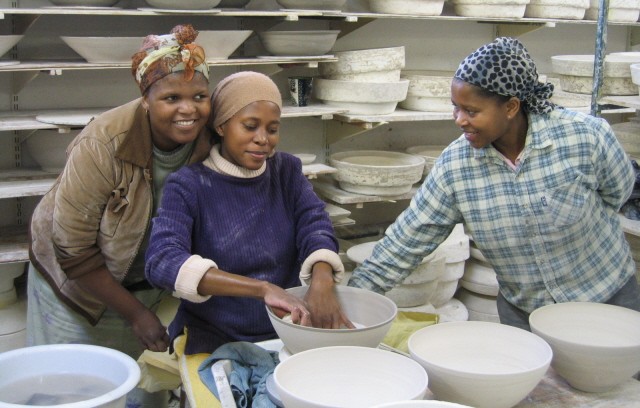Breaking Free of Paternalism: Part 1
We have long known the limiting and corrosive effects of paternalism in working with the poor. Its simplest definition is doing things for people they can do for themselves. It carries with it the idea of needing to “parent” the people you are helping with your superior wisdom and insight and assumes there are no indigenous leaders who can match much less exceed that wisdom and insight.
Books like “Toxic Charity” and “When Helping Hurts” have helped us come to grips with the reality that much of our helping has the unintended consequence of actually hurting the very people we’re trying to help. Choosing an asset based approach to community development over a needs based approach and practicing what Jacquelin Novogratz calls “patient capital” have helped move us away from the more obvious and blatant forms of paternalism. But there still remains a type of soft paternalism in working cross-culturally that we are only now beginning to recognize and honestly address.
Master Designer and “Final Say”
It’s the paternalism of design and “final say,” the last bastion of control that the resource side of a partnership holds over indigenous leaders. It’s when non-indigenous leaders and “experts” end up holding final sway in the design and implementation of programs, projects and priorities. When dollars are tied to any partnership (which is an absolute must) that power differential alone has historically determined who has final say.
When a western church gives dollars to a missions effort and insists it be used for a new project based on fantastic results seen elsewhere in the world we’re practicing soft paternalism. When the UN and the World Bank work together to send financial aid to a country and then insist on who must receive the funds, do the work and run the programs they are practicing the kind of paternalism I’m speaking of.
On the other hand, if we look and listen we will begin to see all around us competent indigenous leaders capable of solving problems and designing solutions. Men and women who are championing their own models of community development and inviting the western church to join them in their work. By “championing” I mean they are both leading and designing the work. Finding them and partnering with them is an impotant step away from the paternalism that has shaped so much of our mission work and a significant key in developing sustainable approaches to church missions.
Orphan Care…The African Way
A case in point. I remember being in Malawi a few years ago with Cayce Stapp, the International Missions Pastor from Church of the Resurrection. The United Methodist Church of Malawi in partnership with Church of the Resurrection was to introduce the work of Zoe to the Minister of Orphans and Vulnerable Children in the city of Medici. After a 45-minute presentation by the Malawian leaders to the Minister and his staff the Minister turned toward the Americans in the room (we had not said a word) and simply said, “Thank you for suggesting an African way for orphans and vulnerable children.” I sensed a cathartic release of years of frustration over the well-intentioned approaches of western missionaries and the harm they had done by forcing the use of orphanage homes on a culture that had better ways to deal with these children.
He called it the “African way” because, in fact, it was developed by Africans for Africans and it is counter-intuitive to everything we think about children in our western way of life. But it works and over the course of three years these children become self-sufficient in ways that set them up for success in life. See for yourself how different ZOE is than the typical orphanage approach so popular with the west.


The truth is, we Americans would never be able to get to this approach through our world view. But it makes perfect sense to Africans who love and care about the plight of orphans and vulnerable children every bit as much as westerners.
The road to more sustainable solutions for the people and communities we seek to help through our church missions will increasingly require us to let go of the soft-paternalism that insists on being the master designer and holding final say. Toward that end, churches make great strides by looking for ministries being led by people with the proven abilities to both design and execute. I’m not suggesting that every idea will work but you can rest assured that their strategies are informed by an indigenous understanding of factors we probably don’t even know exist.
Looking Ahead – Breaking Free of Paternalism: Part 2
 Dr Florence Muindi and the work she has established through Life In Abundance (LIA) is a prime example of indigenous leadership that invites the western church into a partnership that is both indigenously led and designed. Dr Muindi is a native to Kenya, a medical doctor by training and the key architect behind LIA’s transformational development model. They train, equip and walk with local churches throughout Africa and the Caribbean in a holistic model that includes education, economic development and health and wellness.
Dr Florence Muindi and the work she has established through Life In Abundance (LIA) is a prime example of indigenous leadership that invites the western church into a partnership that is both indigenously led and designed. Dr Muindi is a native to Kenya, a medical doctor by training and the key architect behind LIA’s transformational development model. They train, equip and walk with local churches throughout Africa and the Caribbean in a holistic model that includes education, economic development and health and wellness.
 More about Dr Muindini’s Life in Abundance model and the importance of overcoming the softer-paternalism of design and final say in the next article. You can also hear her this year at SATtalks, October 6-7 in Kansas City. Click Here for More Details
More about Dr Muindini’s Life in Abundance model and the importance of overcoming the softer-paternalism of design and final say in the next article. You can also hear her this year at SATtalks, October 6-7 in Kansas City. Click Here for More Details

Leave A Comment
You must be logged in to post a comment.